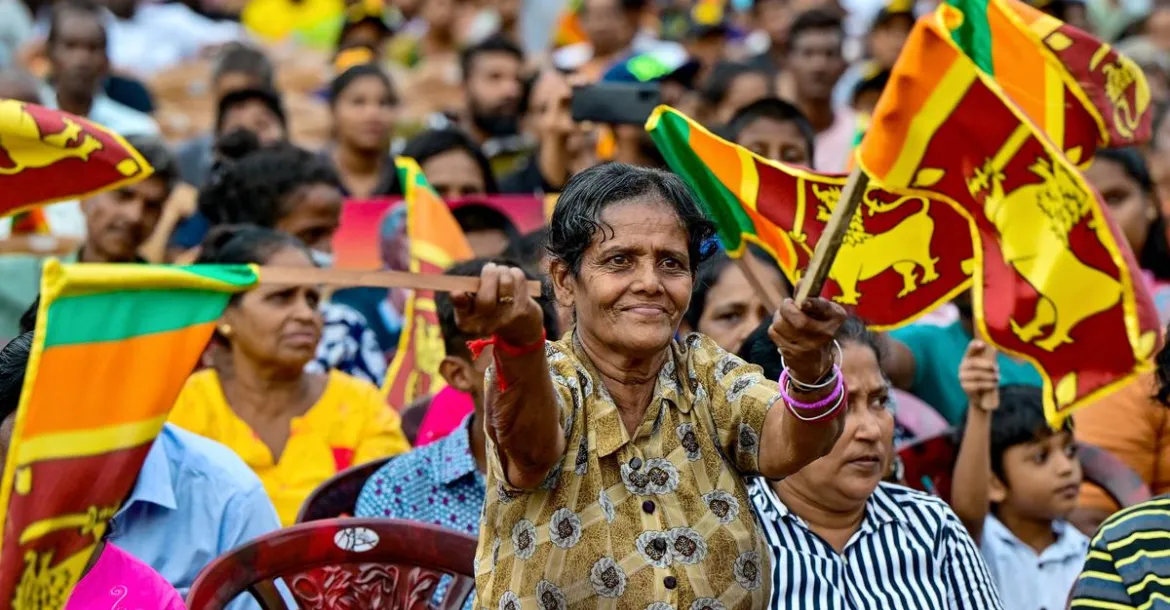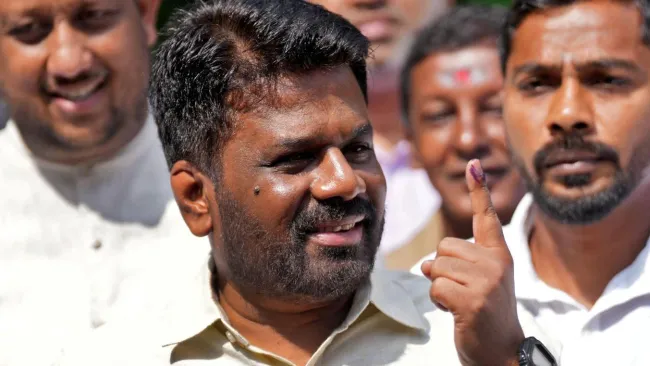Sri Lanka’s Political Shockwave: Marxist Leader Dissanayake Reshapes Power Dynamics with Monumental Win
In a dramatic political upheaval, Sri Lanka’s newly elected Marxist president, Anura Kumara Dissanayake, has led his National People’s Power Party (NPP) to a staggering two-thirds majority in parliament, disrupting decades of entrenched political traditions. The official results, revealed on Friday, have rocked the country’s ruling elite and signaled a radical shift in direction as Sri Lanka grapples with severe economic turmoil.
The NPP crushed its competition, securing 159 of 225 parliamentary seats, a victory that positions Dissanayake to dictate legislative decisions without the burden of coalition politics. Meanwhile, the opposition, led by Sajith Premadasa’s Samagi Jana Balawegaya (SJB), was decimated, managing only 40 seats—a decisive rebuke of the political status quo. Armed with this sweeping mandate, Dissanayake is poised to spearhead transformative reforms, including drafting a new constitution.
This was more than an election; it was an uprising. Disillusioned by economic collapse and decades of corruption, voters made a bold break from the past. Still recovering from its 2022 bankruptcy and debt default, Sri Lanka has entrusted its future—and its fury—to the unorthodox Marxist leader.
Ethnic Divides Break Down in a Game-Changing Moment
The most unexpected twist of the election came from the Tamil-majority region of Jaffna, traditionally dominated by ethnic Tamil parties. In a historic shift, Tamil voters abandoned their usual leaders and threw their weight behind Dissanayake’s NPP. This unprecedented move could redefine Sri Lanka’s fraught ethnic dynamics.
For years, the north had been controlled by fragmented Tamil parties that failed to deliver meaningful change. Voters, disenchanted with the lack of progress, found hope in Dissanayake’s promises of equality and national reform. Political analyst Veeragathy Thanabalasingham observed, “Tamils saw no path forward with their fractured leadership and sought a new alternative.”
Tilvin Silva, a senior NPP figure, hailed the victory as a watershed moment, emphasizing the significance of Tamil support for a Sinhalese-led party and calling it a step toward true national unity.
Economic Collapse Sparks a Call for Change
Sri Lanka’s descent into economic chaos has been a critical driver of this political shift. Years of corruption, fiscal mismanagement, and the devastating impact of COVID-19 crippled the economy, with tourism and remittances drying up and a reckless 2019 tax cut exacerbating the crisis. By 2022, the country couldn’t afford basic necessities like fuel and medicine.
The resulting turmoil ousted former President Gotabaya Rajapaksa, while interim leader Ranil Wickremesinghe’s unpopular austerity measures, designed to meet IMF bailout conditions, alienated the public and set the stage for the NPP’s rise.
Although Dissanayake initially opposed the IMF agreement, calling it burdensome for ordinary citizens, he has softened his stance, suggesting he will cautiously adhere to its terms. However, with soaring public expectations, he faces immense pressure to deliver swift results.
A Demand for Accountability and Reform
The NPP’s campaign promises of rooting out corruption, recovering misappropriated assets, and holding past leaders accountable struck a chord with a nation desperate for justice. Many voters see Dissanayake as a fearless reformer willing to confront the entrenched interests that have long stifled progress.
Jeewantha Balasuriya, a businessman from Gampaha, captured the public sentiment: “This is a chance for real change. If the NPP wastes this opportunity, there won’t be another.”
As Sri Lanka stands at a crossroads, the world is watching closely. Will Dissanayake rise to the challenge of breaking systemic corruption and steering the nation toward recovery? Or will his radical agenda clash with the deeply entrenched structures he seeks to dismantle? One thing is certain: the stakes are monumental.

